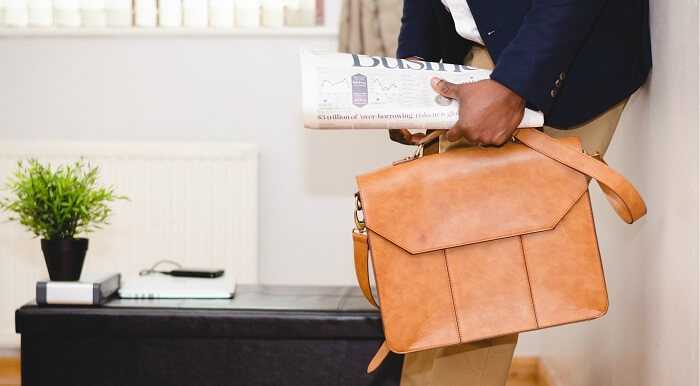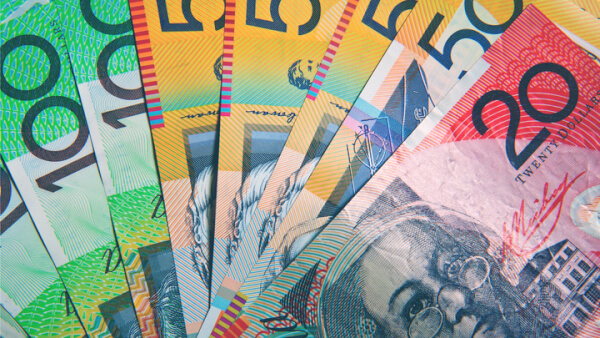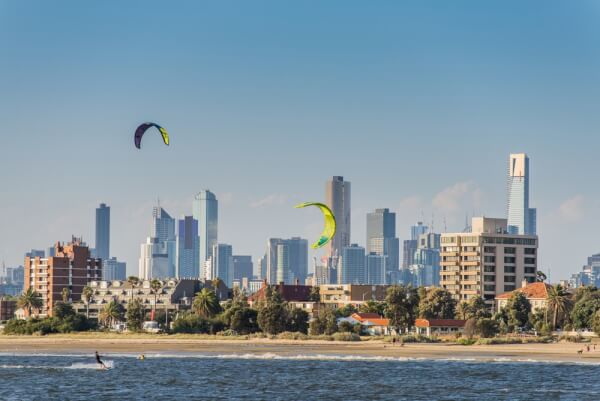ATMs in Australia: Credit cards and fees
If you’re planning a trip to Australia, you may be worried about getting enough Australian Dollars for the whole trip. Well, don’t be. Australia is the sixth...

Whether you call it the Land Down Under or just Australia, the reality is that there are real restrictions and requirements when it comes to bringing cash across borders. If you’re travelling to or from Australia and plan to bring cash with you, you’ll definitely need to be aware of the rules.
Here’s some info to keep in mind to ensure a safe, smooth trip.
| 💰 Wise provides you the mid-market exchange rate and low transparent transfer fees shown upfront. |
|---|
Learn more about
Wise money transfers
There are no limits to how much cash you can bring into Australia. However, if it’s $10,000 (AUD) or more (or the equivalent in a foreign currency) in total, you’re required to declare it at customs. This also applies to non-cash forms of money (like cheques, traveller’s cheques, and money orders).¹
For Australia, there is no limit to the amount of money that you can travel with, receive and send overseas. Just like in the point above, you’ll still have to make a customs declaration if you’re carrying more than $10,000 (AUD) (or the foreign currency equivalent) in cash.¹
Keep in mind that the country you’re travelling to may have its own rules about how much cash you can bring in. Make sure to do your research depending on the country you’re headed to.
| Read more: Tax Implications of Transferring Money from Overseas to Australia |
|---|
The question then becomes, how does this work when it comes to a travelling group or family. Keep in mind that sharing cash and non-cash forms of money between members of a family or travelling group to avoid declaring it is considered “structuring” by the AUSTRAC and this is illegal.
As stated above, one can’t really bring too much cash to Australia. But if one brings in more than a combined value of $10,000 (AUD) in cash and non-cash forms of money, and it’s not declared to customs, one may risk facing penalties which include fines and even imprisonment.¹
Coins and notes qualify as cash when entering Australia.
Bearer negotiable instruments (BNIs) include:
Travellers from all countries are required to declare cash when entering Australia, if the amount is $10,000 (AUD) or more.
Travellers from all countries are required to declare cash when entering Australia, if the amount is $10,000 (AUD) or more.
Physical Currency (CBM-PC) reporting forms are available from customs officers at international airports and seaports. They may be handed out on planes or cruise ships before you land in Australia, but if not, they can be picked up at the airport as you make your way through customs.
You can also make your declaration online here – Online form: Travelling into or out of Australia with money. Sample reporting forms can be seen here.
Exchanging currency in cash is generally not the cheapest way to obtain Australian dollars. If you exchange cash at an exchange service, even if it advertises no fees, it’s probably still exchanging your money at an unfavourable exchange rate so it can make a profit.
It’s generally cheaper to use your debit card to withdraw cash as you need it at a local ATM, where you may be charged an ATM fee, but will typically get a better exchange rate.
Even though Australia is generally a pretty safe place, it’s never a good idea to carry large amounts of cash while you’re travelling. That’s just one more reason to explore options outside of exchanging cash.
Send money with Wise and you get the mid-market exchange rate, which means no expensive mark-up on your currency conversions. Fees are clear, shown upfront and secure.
Wise also offers the Wise Account, which allow users to send, receive and manage money in multiple global currencies, including Australian dollars, all from one account. You can also order a Wise debit card, which you can use to pay for goods and services at the mid-market rate when abroad.
Safety is super important at Wise and it’s regulated wherever it operates. In Australia, it is regulated by the Australian Securities and Investments Commission (ASIC) and holds an Australian Financial Services Licence (AFSL number 513764).
It’s super easy to arrange a payment with Wise. Once your account is approved, you can set one up in minutes, without the need to visit a physical branch in person.
Join over 13 million customers currently enjoying Wise. It’ll only take a few minutes to register and see what’s inside.
Open your Wise account in minutes 🚀
Please see [Terms of Use](https://wise.com/terms-and-conditions) for your region or visit [Wise Fees & Pricing](https://wise.com/au/pricing/) for the most up-to-date pricing and fee information.Hopefully, with these tips in hand, your trip to Australia will go off without a hitch. Safe travels!

Sources checked on 17 Jan 2023
*Please see terms of use and product availability for your region or visit Wise fees and pricing for the most up to date pricing and fee information.
This publication is provided for general information purposes and does not constitute legal, tax or other professional advice from Wise Payments Limited or its subsidiaries and its affiliates, and it is not intended as a substitute for obtaining advice from a financial advisor or any other professional.
We make no representations, warranties or guarantees, whether expressed or implied, that the content in the publication is accurate, complete or up to date.

If you’re planning a trip to Australia, you may be worried about getting enough Australian Dollars for the whole trip. Well, don’t be. Australia is the sixth...

While Perth is one of the most isolated cities in the world, it’s still well worth a visit. Closer to Indonesia than it is to Australia’s capital Canberra, it...

Australia is an attractive destination. With stunning natural scenery, vibrant cities and a fun, laid back lifestyle, it’s hardly a surprise that so many...

In this article, we'll show you the best places to exchange money in Melbourne – plus, a great alternative.

Sydney has more than a fair share of famous icons - from the Opera House and Harbour Bridge to Elle Macpherson and Hugh Jackman. Not to mention that its...